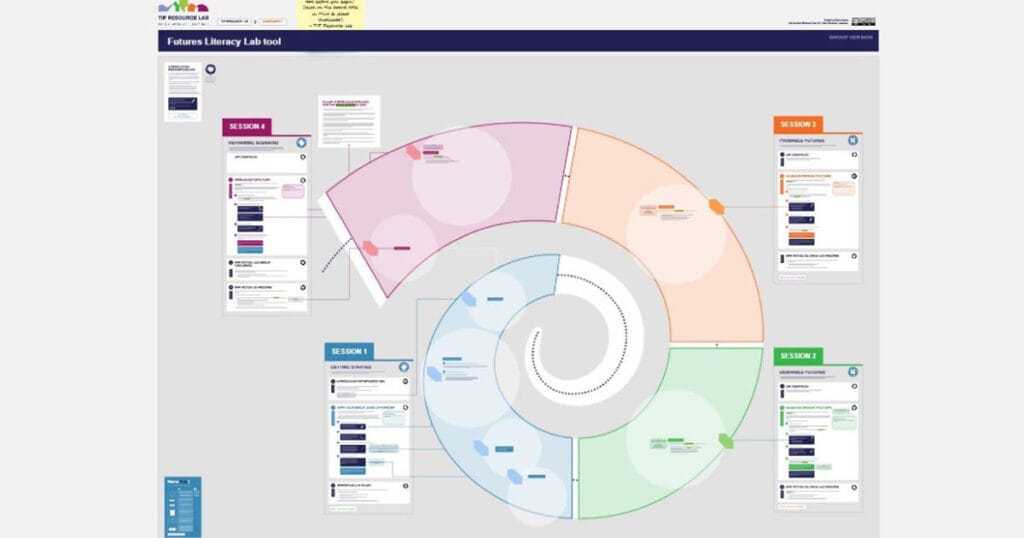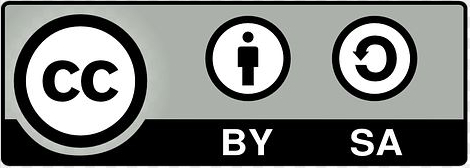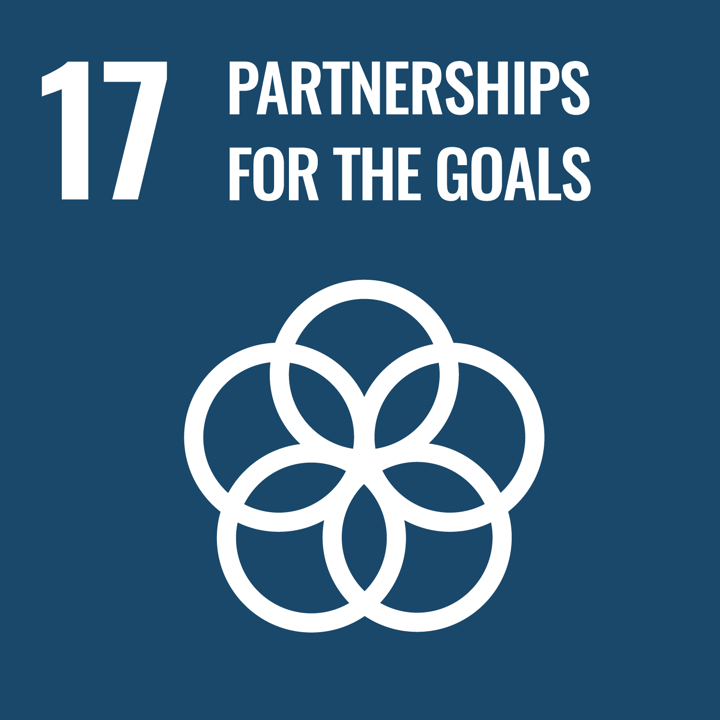
Προβλεπόμενος τελικός χρήστης: Δάσκαλος
Ηλικιακή ομάδα: Κατώτερη Δευτεροβάθμια- Ανώτερη Δευτεροβάθμια
Σχολικό πρόγραμμα σπουδών: Social & Environment Science; Languages; Arts; Applied Science
Θέματα και θεματικές ενότητες: Futures Thinking; Information & Knowledge
Διάρκεια: 4 session (3 x 90 mins and 1 x 120 mins)
Τύπος πόρου: Guidelines & Notes, Lesson Plans, Online Tool, Workshop
Λέξεις-κλειδιά: Futures Literacy, Imagination, Workshops, Online Tool, Student-Centred Learning
Γλώσσες: Αγγλικά
Περιγραφή
Το Futures Literacy Lab was created by the Transformative Innovation Policy Consortium (TIPC), a multi-country initiative dedicated to how policymakers, academics and funding agencies can orientate science, technology and innovation towards transition and a more sustainable future.
This tool guides participants through a Futures Literacy Lab, a practical method to help us reveal, reframe and rethink the assumptions we use to imagine the future. It draws on TIPC’s Nordic members’ experience of running a Lab in partnership with UNESCO and The Nordic Institute for Studies in Innovation, Research and Education in 2021.
Participants in the Lab will exercise their imaginative capabilities and play with their images of the future. The point is not to predict the future, but to explore different stories about it, and to use these stories to reflect on our preconceptions about social, cultural, economic, environmental and technological drivers.
This is a capacity development activity and may lead to second order learning in relation to the assumptions and underlying beliefs influencing a TIP theory of change.
Πώς να χρησιμοποιήσετε αυτόν τον πόρο
The tool is for use by participants during a facilitated workshop series. It is not designed to be self-facilitated and requires (a) one lead facilitator, (b) a team of small group facilitators, and (c) a group of participants, some of whom will act as rapporteurs.
If you are preparing to facilitate the sessions, please refer to the guidance for facilitators and the slides introducing the Futures Literacy Lab methodology.
Οι πόροι
Futures Literacy Lab Guidance for Facilitators PDF:
The Tool: Future Literacy Lab and supporting resources can be accessed on the TIP Resource Lab website (here).
Other Futures Literacy resources hosted by the TIP Resource Lab can be accessed here.
Το UNESCO Futures Literacy & Foresight website provides additional information and resources to understand the importance of futures literacy in preparing recovering and inventing is the face of change.
Μαθησιακά αποτελέσματα (εκπαιδευτικοί)
- Αναζήτηση προηγούμενων γνώσεων και περαιτέρω ανάπτυξη της γνώσης και της κατανόησης βασικών εννοιών της Αειφόρου Ιθαγένειας, αμφισβητώντας καθιερωμένες κοσμοθεωρίες και αξίες.
- Εφαρμογή μιας σειράς κατάλληλων εργαλείων και πλαισίων για την προώθηση της αειφόρου πολιτειότητας των μαθητών
- Αναστοχασμός της πρακτικής και εξέταση των εθνικών προγραμμάτων σπουδών για τον εντοπισμό ευκαιριών προώθησης της ιδιότητας του πολίτη της αειφορίας με διεπιστημονικούς τρόπους και συνεργασία με εξωτερικούς ενδιαφερόμενους φορείς.
- Συνθέτουν συνεργατικά τις γνώσεις, τα εργαλεία και τα πλαίσια για να δημιουργήσουν εκπαιδευτικό υλικό και σχέδια μαθημάτων προσαρμοσμένα στο δικό τους τοπικό πλαίσιο.
- Μέσω δραστηριοτήτων εργαστηρίων και κοινοτήτων πρακτικής, ανάπτυξη ικανοτήτων και δράσης ως εκπαιδευτές και ηγέτες της Αειφόρου Πολιτειότητας.
Πράσινες ικανότητες
- Ενσάρκωση βιώσιμων αξιών: Αποτίμηση της βιωσιμότητας
- Αγκαλιάζοντας την πολυπλοκότητα στη βιωσιμότητα: Συστημική σκέψη; Κριτική σκέψη; Διαμόρφωση προβλημάτων
- Οραματιζόμενοι βιώσιμα μέλλοντα: Μελλοντική παιδεία- Προσαρμοστικότητα- Διερευνητική σκέψη
- Δράση για τη βιωσιμότητα: Συλλογική δράση- Ατομική πρωτοβουλία
Creative Commons

The Resource Lab was created by the Transformative Innovation Policy Consortium (TIPC), a multi-country initiative dedicated to how policymakers, academics and funding agencies can orientate science, technology and innovation towards transition and a more sustainable future. The resources are shared here under Creative Commons License 4.0 Attribution and ShareAlike and with kind permission from TIPC.
SDGs



